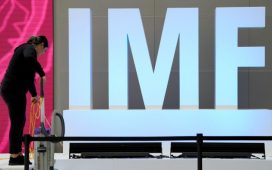Value of ‘gold-plated’ pension plans fell by more than £400bn last year: Assets held by company funds dropped by a whopping 23%
- Details of this destruction in figures from The Pension Protection Fund
- Rout equivalent to economy of Israel or Argentina
- It caused experts to sound alarm bells
The value of ‘gold-plated’ pension plans fell by more than £400billion last year.
Assets held by company pension funds that guarantee the retirement income of 10m workers based on their final salary dropped by a whopping 23 per cent last year to £1.4 trillion.
That is more than the stock market value of Shell, Unilever and HSBC combined.

Picking the lock: Assets held by company pension funds that guarantee the retirement income of 10m workers based on their final salary dropped by a whopping 23 per cent to £1.4 trillion
Details of this vast destruction of asset value – a rout equivalent to the economy of Israel or Argentina – are contained in figures from The Pension Protection Fund, the industry lifeboat.
It caused experts to sound alarm bells. ‘There is simply less in the pot to pay pensions from,’ said Iain Clacher, pensions professor at Leeds University Business School.
The news wasn’t all bad. Liabilities – the net present value of future pension promises – fell even more than the assets of 5,100 schemes reviewed.
That meant the gap between £1billion of promised payments and the assets funding them showed a surplus of £377billion.
‘We’re in an excellent position to continue to safeguard the 9.6m defined benefit pension savers under our protection,’ said Lisa McCrory, the PPF’s finance boss.
But there are fears the improvement in funding levels could prove less robust than it appears. And experts say only some of the collapse in pension values can be pinned on Kwasi Kwarteng’s mini-budget.
It triggered a sudden sell-off in gilts – Government IOUs that final salary schemes invest in heavily – and also exposed a dangerous level of leverage, or borrowing, hidden in the company pensions system.
But Clacher said issues with so – called liability- driven investment (LDI) strategies – used by pension schemes to keep funding levels healthy – had begun long before Kwarteng drew up his plans.
‘What the mini-budget did was put more stress into an increasingly stressed situation,’ he said.
Surging food and fuel prices plus higher interest rates have placed a huge strain on final salary pensions. Independent financial adviser Brian Dennehy said: ‘A 40-year cycle of falling interest rates and falling inflation finished in 2021/22. This risk should have been allowed for in the time scales used by actuaries.’











